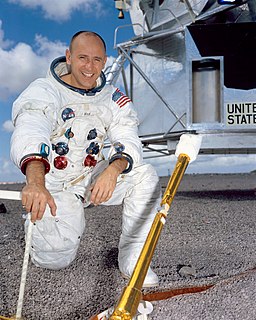A Quote by Gonzalo Rodriguez-Pereyra
I would say I was a philosophical boy. Thoughts about 'identical stones' are the earliest philosophical thoughts I remember. But when I was a teenager I also thought about the more typical philosophical problems teenagers think about: the existence of god, the objectivity of morality, whether one can know that the external world exists.
Related Quotes
Philosophical argument, trying to get someone to believe something whether he wants to believe it or not, is not, I have held, a nice way to behave towards someone; also it does not fit the original motivation for studying or entering philosophy. That motivation is puzzlement, curiousity, a desire to understand, not a desire to produce uniformity of belief. Most people do not want to become thought-police. The philosophical goal of explanation rather than proof not only is morally better, it is more in accord with one's philosophical motivation.
Philosophy aims at the logical clarification of thoughts. Philosophy is not a body of doctrine but an activity. A philosophical work consists essentially of elucidations. Philosophy does not result in 'philosophical propositions', but rather in the clarification of propositions. Without philosophy thoughts are, as it were, cloudy and indistinct: its task is to make them clear and to give them sharp boundaries.
Quite early on, and certainly since I started writing, I found that philosophical questions occupied me more than any other kind. I hadn't really thought of them as being philosophical questions, but one rapidly comes to an understanding that philosophy's only really about two questions: 'What is true?' and 'What is good?'
My first degree was in mathematics. That was great, but it didn't help with many of the things that puzzled me. I became a philosopher because I wanted to understand everything, especially those things that didn't make sense. And that has continued to be my philosophical motivation. That's one reason I have such a roving philosophical eye - once I have figured out a philosophical topic to my satisfaction, I find myself moving on to new problems.
If God were to exist for the entire humanity, he would be profoundly vile, as he allows the existence of unfathomable sin, stupidity, madness, and misery for no reason than his own despicable enjoyment. God exists though, not for all humanity, but for a one chosen man - a philosopher - who is bound to answer the greatest philosophical question, the question about the nature of the questioner's existence, which progressively quenches the divine vanity.
I know that previously I would not have dared to express myself so explicitly about so uncertain a matter. I can take this risk because I am now in my eighth decade, and the changing opinions of men scarcely impress me any more; the thoughts of the old masters are of greater value to me than the philosophical prejudices of the Western mind.
Although you can find certain differences among the Buddhist philosophical schools about how the universe came into being, the basic common question addressed is how the two fundamental principles-external matter and internal mind or consciousness-although distinct, affect one another. External causes and conditions are responsible for certain of our experiences of happiness and suffering. Yet we find that it is principally our own feelings, our thoughts and our emotions, that really determine whether we are going to suffer or be happy.
Teenagers watch and listen to all kinds of things. It is the nature of being a teenager to seek out intense stuff. Stuff about death and sex and love and fear. Teenagers are the bravest, most curious, most philosophical, most open-minded readers there are, which is why so many less-than-young adults like writing for them.
As to how I would guide someone who is confused about the idea of God, I would suggest that he or she begins identifying what one might called "philosophical friends," - people with whom one could seriously examine our thought about God through listening to each other, reading important and useful books together and trying to think for oneself while familiarizing oneself with the ideas of some of the world's great thinkers. Cultivate openness without gullibility and skepticism without cynicism.
Knowledge about God is of two kinds, direct and indirect. Indirectly we can read scriptures, listen to sermons, consult authorities, and from these sources build a reasonable case that God exists. But such a God transmits no love to Earth. Therefore nothing substitutes for gyana, which is direct knowledge of the divine. Instead of having thoughts about God, you share God's own thoughts. Her thoughts can only be about Herself.
The terminology of philosophical art is coercive: arguments are powerful and best when they are knockdown, arguments force you to a conclusion, if you believe the premisses you have to or must believe the conclusion, some arguments do not carry much punch, and so forth. A philosophical argument is an attempt to get someone to believe something, whether he wants to beleive it or not. A successful philosophical argument, a strong argument, forces someone to a belief.





























